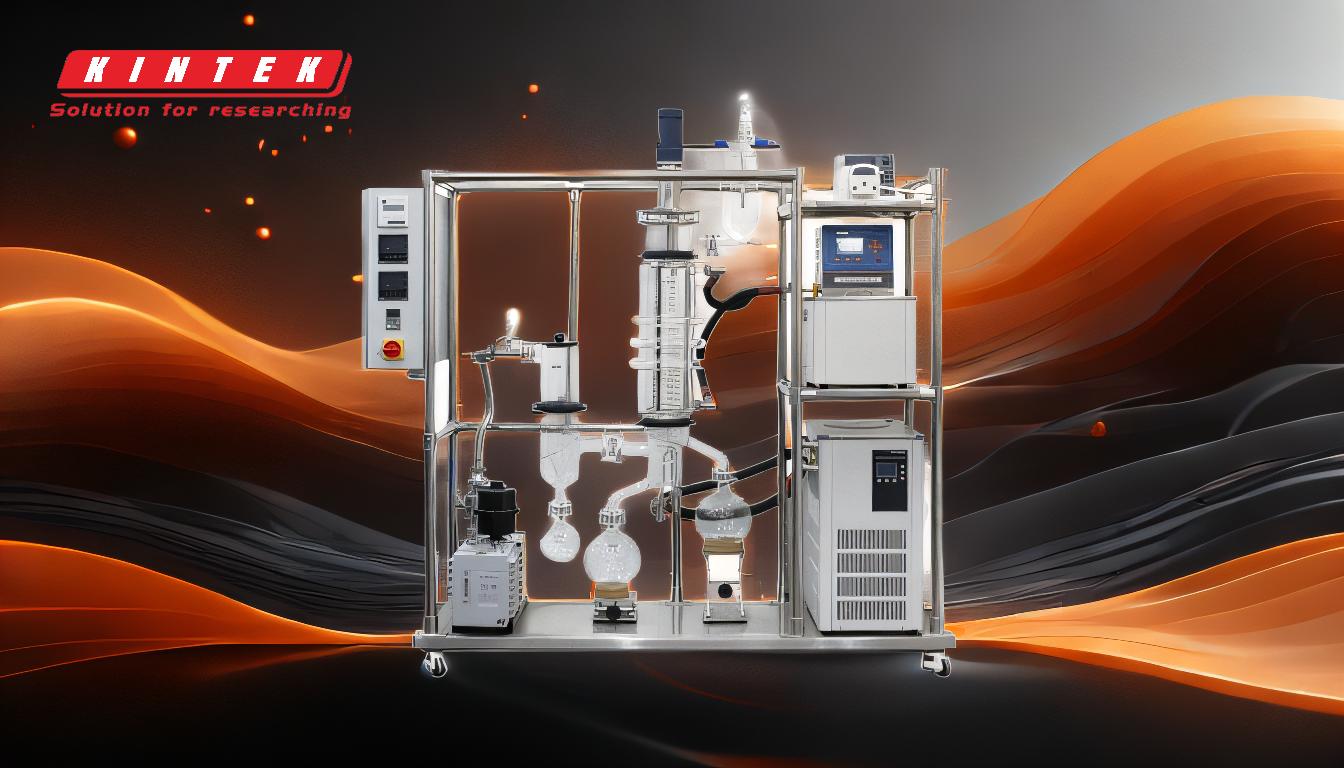Distillation is a slow process due to several interrelated factors that influence the efficiency and speed of separation. These factors include the system's vacuum level, temperature control, liquid layer thickness, and mechanical aspects such as the rotation speed of the evaporation bottle. Each of these elements must be carefully balanced to achieve optimal distillation without compromising the integrity of the materials being processed. For instance, higher temperatures can increase evaporation rates but may also degrade heat-sensitive compounds. Similarly, while faster rotation speeds can enhance heat transfer, they must be optimized to avoid excessive liquid film thickness, which can slow down diffusion rates. The vacuum system's tightness and the cooling medium's efficiency also play critical roles in maintaining a stable and effective distillation environment.
Key Points Explained:

-
System Vacuum Value:
- The vacuum level in the distillation system is crucial for reducing the boiling point of the substances being distilled. A higher vacuum (lower pressure) allows for distillation at lower temperatures, which is essential for heat-sensitive materials.
- However, achieving and maintaining a high vacuum requires a powerful vacuum pump and a tightly sealed system. Any leaks or inefficiencies in the vacuum system can significantly slow down the process.
- Components like sealing rings and vacuum tubes must be made from durable materials (e.g., PTFE) to ensure long-term performance and resistance to wear and corrosion.
-
Temperature Control:
- Temperature is a double-edged sword in distillation. While higher temperatures increase the evaporation rate, they can also lead to the degradation of thermally sensitive compounds.
- The distillation temperature must be carefully selected based on the thermal stability of the material. This often involves a trade-off between speed and the quality of the final product.
- In rotary evaporators, the water bath temperature must be precisely controlled to avoid damaging the samples, especially when dealing with heat-sensitive substances.
-
Liquid Layer Thickness and Flow:
- The thickness of the liquid layer on the evaporation surface directly affects the diffusion rate of molecules. A thinner liquid layer enhances the rate of molecular distillation by reducing the distance molecules must travel to escape into the vapor phase.
- Enhancing the flow of the liquid layer can also improve distillation efficiency by continuously refreshing the surface and preventing the buildup of a stagnant layer.
- In rotary evaporators, the rotation speed of the sample bottle influences the liquid film thickness. Faster rotation speeds increase the surface area and heat transfer but must be optimized to avoid creating a too-thick liquid layer that slows down diffusion.
-
Rotation Speed of the Evaporation Bottle:
- The rotation speed of the evaporation bottle in a rotary evaporator affects both the surface area exposed to heat and the thickness of the liquid film.
- Optimal rotation speeds vary depending on the material being distilled. Too slow, and the surface area is insufficient; too fast, and the liquid film becomes too thick, hindering evaporation.
- The motor driving the rotation, especially brushless DC motors, must provide consistent and reliable power to maintain the desired speed.
-
Cooling Medium Efficiency:
- The efficiency of the cooling medium in the condensation recovery unit is critical for maintaining a stable distillation process. Effective cooling ensures that the vaporized molecules are quickly condensed and collected, preventing them from re-entering the liquid phase.
- Inefficient cooling can lead to a buildup of vapor pressure, which can slow down the overall distillation rate and potentially lead to loss of product.
-
Material Properties and Equipment Design:
- The design of the distillation equipment, including the choice of materials for components like sealing rings and vacuum tubes, can impact the speed and efficiency of the process.
- Materials with better wear and corrosion resistance, such as PTFE, can maintain a tighter seal and more consistent vacuum levels over time, contributing to a more efficient distillation process.
In summary, distillation is a slow process because it requires a delicate balance of multiple factors, including vacuum level, temperature, liquid layer thickness, rotation speed, and cooling efficiency. Each of these factors must be carefully controlled and optimized to ensure efficient separation without compromising the quality of the distilled product.
Summary Table:
| Factor | Impact on Distillation |
|---|---|
| System Vacuum Value | Higher vacuum reduces boiling points but requires a tightly sealed system for efficiency. |
| Temperature Control | Higher temps increase evaporation but may degrade heat-sensitive compounds. |
| Liquid Layer Thickness | Thinner layers enhance diffusion rates; thicker layers slow down the process. |
| Rotation Speed | Faster rotation increases heat transfer but must avoid excessive liquid film thickness. |
| Cooling Efficiency | Efficient cooling ensures quick condensation and prevents vapor pressure buildup. |
| Material Properties | Durable materials like PTFE maintain vacuum levels and resist wear over time. |
Optimize your distillation process with expert guidance—contact us today!









